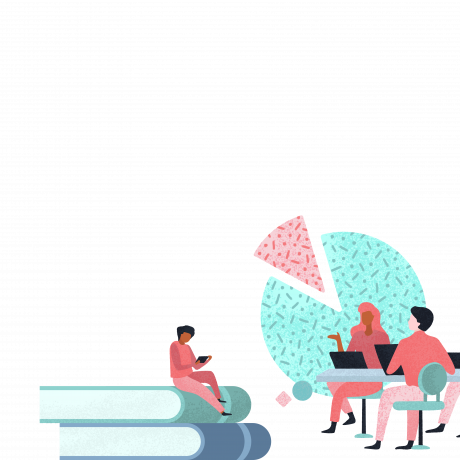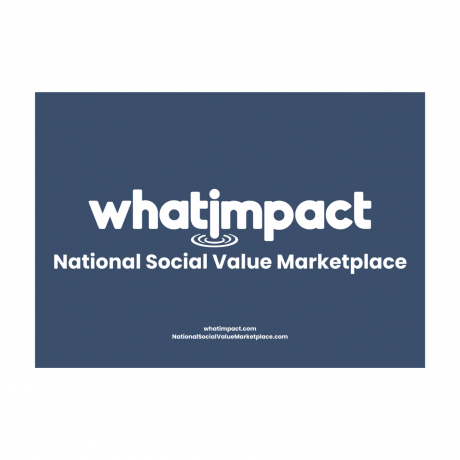Opinion piece by Tiia Sammallahti, CEO, whatimpact National Social Value Marketplace
Last week, the government released its new National Procurement Policy Statement to support the new Procurement Act 2023 taking place on 24th February 2025, outlining how it plans to leverage its £350 billion annual buying power to benefit society. This builds on the Public Sector Policy Note (PPN 06/20) and strengthens efforts to achieve the goals of the Social Value Act.
Public sector procurement may seem like a niche or bureaucratic topic, but in reality, it has the power to shape the well-being of the entire UK. Every public sector tender now includes a ‘social value’ component, accounting for at least 10% of the evaluation score—with some local authorities increasing it to 30%. The cheapest bid no longer wins; instead, the contract goes to the most advantageous offer. The most advantageous offer must be economically, socially, and environmentally beneficial to society. Even the National Public Procurement statement highlights the potential advantages of such an approach.
Recent updates to commonly used and recently updated public sector procurement frameworks, such as the GOV Social Value Model and TOMS, now place greater emphasis on the method statement and delivery plan. Economic, social, and environmental criteria will play an increasingly significant role, in winning bids, rather than the focus solely being on economic benefits.
Social value considerations cover a broad range of areas, including:
✅ Employment and training opportunities
✅ Community support and development
✅ Environmental impact and sustainability
✅ Health & well-being initiatives
✅ Crime prevention strategies
✅ Entrepreneurial support
What’s in the New National Procurement Policy Statement?
The policy identifies key focus areas where voluntary, community, and social enterprises (VCSEs) can play a crucial role:
1️⃣ Kickstarting economic growth – Opening opportunities for SMEs and social enterprises
2️⃣ Leading the clean energy revolution – Investing in green technology and protecting biodiversity
3️⃣ Strengthening communities – Supporting crime prevention and social cohesion
4️⃣ Breaking barriers – Creating jobs and skills training for underrepresented groups
5️⃣ Building a future-proof NHS – Supporting workforce mental and physical health
VCSEs: A Key but Overlooked Partner
With over 500,000 registered VCSEs, only a small percentage operate as direct public sector suppliers. However, many can serve as ‘social value delivery partners’, collaborating with private sector bidders to fulfil social value commitments. This means more funding, donations, and volunteering support for charities and social enterprises.
Private companies can also purchase VCSE services, such as employment and rehabilitation programs for homeless individuals, ex-offenders, and the long-term unemployed, all key priorities under the new policy. Similarly, crime prevention and domestic violence support services, now highlighted in the policy, rely heavily on VCSE expertise.
Why Aren’t More VCSEs Seizing This Opportunity?
Unfortunately, third-sector media and support networks have shrunk post-COVID due to funding challenges. Many VCSEs remain unaware of these procurement opportunities or lack the knowledge to navigate the system. This is a missed opportunity worth tens, if not hundreds, of millions of pounds in resources.
The role of VCSEs in shaping a better society is undeniable. Now is the time to strengthen cross-sector collaboration and communication and ensure charities and social enterprises have the information and tools they need to engage with procurement processes effectively.
It’s time for action.
For more please visit the links below:
Tiia Speaking at Cabinet Office hosted Expo in Birmingham on 27th Feb
whatimpact is a National Social Value Marketplace that saves government suppliers time and money by streamlining the process of finding the most suitable partners to deliver social value and impact criteria efficiently and locally. It improves the quality of social value plans and delivery. whatimpact.com increases efficiency in social value partnerships between VCSEs and companies by reducing the cost and time spent on administrating locally relevant, tangible, and contract-specific social value.
Tiia Sammallahti is the CEO & founder of whatimpact.com. In addition to running whatimpact, the tech start-up, Tiia is an active content writer and collaboration initiator in the social value industry.





